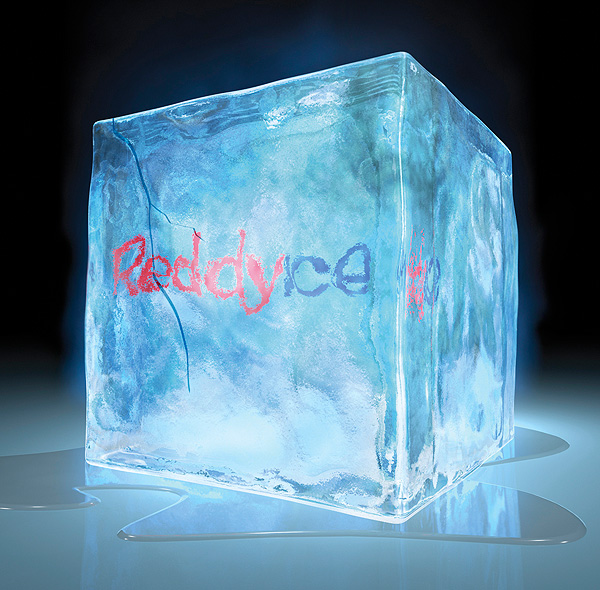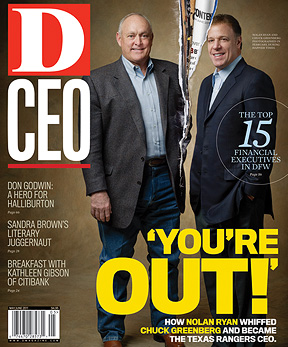At the end of 2007, Dallas-based Reddy Ice Holdings Inc. was riding high. The largest manufacturer and distributor of packaged ice in the United States, Reddy Ice, which currently has about 2,000 full-time employees, had expanded its brand to more than 30 states and the District of Columbia through retailers and a customer base that included restaurants, special events, and commercial users. Its August 2005 IPO raised more $190 million; a secondary offering nine months later brought in an additional $98.9 million.
In 2005, Reddy Ice reported revenue of $320 million, a figure that grew to $339 million by 2007. The secret to its success, Reddy Ice maintained, was a loyal customer base, an aggressive business plan, and an broad geographic footprint.
But by the spring of 2008, the company’s business prospects seemed to be melting away as quickly as its product would in the Texas heat. First came word that Reddy Ice had withdrawn from a potential merger with a hedge fund—news that caused the company’s stock, which at one point was trading as high as $31 per share, to drop to about $22 per share. Then on March 5, 2008, the FBI executed a search warrant, raiding the packaged ice giant’s Dallas headquarters and seizing various documents and materials.
The search was directed by the U.S. Department of Justice’s antitrust division in connection with an ongoing investigation of the packaged ice industry. Two days later, Reddy Ice’s stock price fell from about $23.50 to $15.38 per share—a one-day capitalization loss of $180 million, according to one of the shareholder derivative lawsuits that would soon follow. An informal inquiry into Reddy Ice Holdings Inc. by the Securities and Exchange Commission was also launched.
After the raid, the hits just kept on coming. In its 2007 annual report, released in mid-March 2008, Reddy Ice disclosed that some employees, including members of management, had received grand jury subpoenas relating to a criminal probe of the packaged ice business. The same report also revealed that the company had received “civil investigative demands” for documents from the attorneys general of Florida and Arizona in connection with a multi-state antitrust investigation of the ice industry. In June 2008, the U.S. District Court for the Southern District of Ohio unsealed an Oct. 30, 2007, guilty plea by one of Reddy Ice’s chief rivals, Home City Ice Co. In it, the company, through its CEO Thomas Sedler, pleaded guilty to participating in a conspiracy to stifle and eliminate competition by agreeing with other packaged ice companies to allocate territories and customers. Another Reddy Ice competitor, Arctic Glacier Inc., fell under similar scrutiny and, in October 2009, Arctic Glacier and three of its top executives pleaded guilty to violating antitrust laws by taking part in a scheme to allocate customers in Michigan.
On Aug. 7, 2008, The Wall Street Journal published an article that went into detail about the whistleblower claims being raised by Martin McNulty, a former Arctic Glacier executive. McNulty detailed alleged conversations with his company’s vice president of sales and marketing, Keith Corbin, who described an agreement between Reddy Ice, Arctic Glacier, and Home City to divvy up customers and stay out of each other’s sales regions so they could drive up prices. After this, Reddy Ice shares, which had already been dropping, fell $2.40 a share to close at $10.99 per share.
The following month, Reddy Ice announced that it had suspended Ben Key, its executive vice president of sales and marketing, for likely violations of company policies in connection with the purported antitrust violations. The same day, the company indicated it was suspending its dividend amid weaker than expected operating results and costs related to the company investigations and litigation. By the next day, Reddy Ice’s stock had dropped to a disappointing $4.40 per share and, by Sept. 17, 2008, the prices melted to $3.43 per share.
At this point, Reddy Ice had more to worry about than federal investigations and antitrust lawsuits. Shareholder lawsuits were being filed against both the company and individual officers, including CFO Steven J. Janusek. (Janusek declined interview requests for this story on behalf of Reddy Ice, saying, “We just don’t think the timing may be right.”)
By November 2009, the shareholder plaintiffs had filed a consolidated class-action complaint against the company. In it, the plaintiffs alleged numerous violations of securities laws. Chief among them was the claim that Reddy Ice’s misrepresentations and omissions failed to disclose to shareholders that a significant percentage of its revenue was the result of market allocation agreements with major competitors, and that as a result its stock was trading at an inflated price. Benefitting from this supposed wrongdoing, the plaintiff’s claimed, were Janusek and William Brick and Jimmy Weaver, both of whom formerly served as president and CEO.
Besides the proceeds from sales of their stock while it was performing well, the class-action complaint maintained that each of these officers had received hefty compensation and bonus packages. According to the complaint, Brick received $3.5 million during the 2006-2008 timeframe, while Janusek collected $1.6 million and Weaver earned $2.5 million.
Making matters worse for Reddy Ice was the array of witnesses the shareholders were relying on to back up their allegations in the class-action lawsuit. Besides Martin McNulty and his purported knowledge of illegal market-fixing, the shareholders identified several confidential witnesses who had access to highly sensitive information regarding the company’s financial performance and business practices, and who would corroborate the allegations of wrongdoing. These included Reddy Ice’s former national purchasing and contracts manager, a former internal auditor with knowledge of alleged agreements with competitors and price manipulation, a former internal audit manager, and a former plant manager for one of Reddy Ice’s manufacturing facilities in Arizona.
But like a boxer on the ropes who somehow finds the strength to rally, Reddy Ice fought back, and its once-bleak picture began to brighten.
By the third quarter of 2010, the company had settled its claims against one of its insurance carriers relating to coverage for the antitrust allegations, netting Reddy Ice $5 million. Revenue for the first nine months of 2010 amounted to $260.2 million, a slight increase over the same period in 2009. The company and several individual officers filed a motion to dismiss the shareholder class action.
But the best news came on Oct. 29, 2010, with dual announcements: the SEC had closed its informal inquiry into Reddy Ice and would take no action, and the Department of Justice’s antitrust division had similarly concluded its criminal investigation into antitrust violations. In Reddy Ice’s Form 8-K filing with the SEC on Jan. 4, 2011, it happily noted these developments as well as other indications that the company had turned a corner—the formal disbanding of a special committee of Reddy Ice’s board of directors formed in response to the criminal investigation, as well as the voluntary resignation (effective Feb. 28, 2011) of its suspended executive vice-president for sales and marketing, Ben Key. Then, in late March, the Justice Department’s civil fraud division, which was also probing the packaged ice industry, said it would take no action against Reddy Ice.
Avoiding a “Feeding Frenzy”
The company’s legal problems have not completely thawed, however. Investigations by state attorneys general remain pending, as do lawsuits brought by customers who feel they were cheated and shareholders who feel they were duped. In a statement, Reddy Ice’s current president and CEO, Gilbert M. Cassagne, says, “the company continues to vigorously defend all of these cases.” Last December, the Eastern District of Michigan denied Reddy Ice’s motion to dismiss the shareholders’ consolidated class-action complaint. Even with the heightened pleading requirements of securities fraud cases, the court noted, the shareholder plaintiffs had adequately pleaded the existence of illegal market allocation agreements as well as materially false and misleading statements by the defendants. As a result of this decision, the plaintiffs’ case will continue.
Legal experts give a cautiously optimistic outlook for Reddy Ice. Matthew Orwig, former U.S. attorney for the Eastern District of Texas and current managing partner of the Dallas office of SNR Denton, has represented companies in internal investigations, governmental probes, and antitrust and shareholder lawsuits of the kind faced by Reddy Ice. He notes that Reddy Ice “has shown a lot of resilience,” and that the closure of the SEC and DOJ investigations “is as close as you can get to a legal clean bill of health.” He adds, however, that as well as the company reacted to the problems, the situation could have been avoided or minimized by addressing in-house the factors that triggered the investigations.
Orwig says any time a company has problems that lead to the kind of legal barrage faced by Reddy Ice, the “triggering force” behind it could still be present in some way, leading to lingering concerns. Dealing with shareholders’ lawsuits can be “a feeding frenzy that doesn’t go away,” Orwig says, and he urges companies to adopt a proactive approach in addressing the investigations—both internal and external—that can lead to such litigation.
“As well as you react,” he says, “it’s never as good as being proactive and getting ahead of the situation.”
John Browning is a partner at the law firm of Thompson Coe Cousins & Irons in Dallas, an award-winning journalist, and the author of The Lawyer’s Guide to Social Networking.






